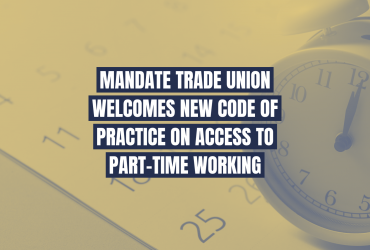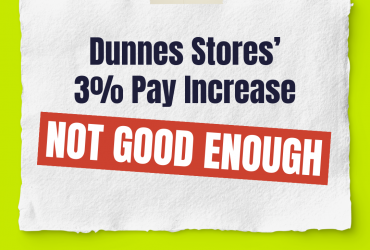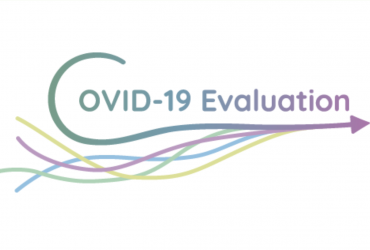Household distress is at “unprecedented levels”
Wednesday 13 February 2013According to Central Bank governor Patrick Honohan today, household financial distress is at “unprecedented levels.”
This can be seen, he said, from the “extraordinary” rates of arrears on the servicing even of mortgages secured on owner-occupied homes.
While this doesn’t come as a surprise to many Mandate Trade Union members, it is distressing to think of what conditions will be like when the government has implemented more cuts and more stealth taxes on those who can least afford to pay them.
In May, the government expects property owners to pay a new household charge for six months which will take between €45 and €427 from the pockets of low and middle-income earners who are already struggling to get by.
It has also been widely reported that households will also face a water charge next year which will take another estimated €370 out of their pockets.
Coincidentally, information released today from the Survey on Income and Living Conditions (SILC) shows that one quarter of the population is now considered to be living in deprivation, which means they are unable to afford at least two items which are generally considered necessary in society.
The most common types of deprivation were:
- Not having the money to replace worn out furniture (21.7 per cent)
- Unable to afford a morning/afternoon/evening out (21.1 per cent)
- Unable to have family or friends over for a meal or a drink (14.8 per cent)
- Unable to afford heating at some stage in the last year (12.2 per cent).
The report also states that:
- In 2011, the ‘at risk of poverty’ rate increased to 16.0% from 14.7% in 2010.
- The consistent poverty rate was 6.9% in 2011, up from 6.3% in 2010.

Irish citizens are at breaking point, some are already over that threshold, and taking more and more money from the people who spend all of their money in the domestic economy is going to put families and businesses under even more pressure.
Many people are now facing the stark choice of whether they pay their mortgage payments, the household charge, water charges, electricity bills or feed their family. A stressful decision, to say the least, and all with very severe consequences, but they are real decisions that many families will have to make.
With all these figures providing an insight into the state of the nation, it’s clearly evident that unless we change course and stop taking money out of low and middle-income earners’ pockets, we are facing into an even larger financial and social crisis.






